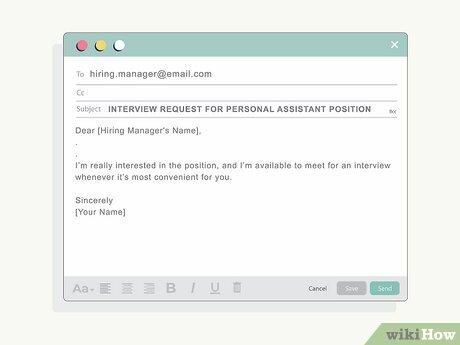Democratic lawmakers from Houston are calling on Texas Governor Greg Abbott to promptly schedule a special election to fill a recently vacated congressional seat. The vacancy, which has left constituents without representation, has sparked urgent appeals from local officials emphasizing the need for swift electoral action. As conversations unfold, the request highlights concerns over ensuring Houston residents regain full congressional representation ahead of the upcoming legislative session.
Democratic Lawmakers Advocate for Immediate Special Election in Houston
In a display of urgency and bipartisan concern, several Democratic lawmakers based in Houston have officially petitioned the Texas governor to promptly schedule a special election to fill the recently vacated congressional seat. Highlighting the critical need for representation in the district, these officials emphasize that a swift electoral process is vital for maintaining the voices of Houston residents within federal lawmaking. The lawmakers stress that prolonged vacancy could hinder policy advocacy on key local issues, including infrastructure development, healthcare access, and economic recovery.
The coalition supporting the call includes influential members who highlighted several reasons behind the demand for immediate action:
- Democratic voter engagement: Preventing voter disenfranchisement by restoring full representation.
- Legislative continuity: Ensuring a seamless transition to maintain momentum on critical legislation.
- Community stability: Addressing constituents’ needs without delay amid ongoing regional challenges.
| Key Dates | Action Required |
|---|---|
| Within 30 Days | Governor to announce special election date |
| Special Election | Elect new congressional representative |
Impact of the Vacant Congressional Seat on Local Representation and Policy
The absence of a sitting representative in this crucial district has left constituents without a direct voice in congressional discussions, particularly during a pivotal legislative session. Local groups have expressed concern over lacking guidance on federal aid distribution and delayed advocacy on pressing regional issues such as infrastructure development, healthcare accessibility, and disaster response funding. The void in representation means that critical community needs risk being overlooked at a time when swift action is essential.
Key consequences of the vacant seat include:
- Reduced influence in shaping federal legislation directly impacting Houston residents.
- Delayed constituent services, including casework assistance and grant facilitation.
- Limited participation in budget allocations pivotal for local programs.
- Diminished capacity to address urgent concerns, such as hurricane preparedness and economic recovery efforts.
| Impact Area | Normal Role of Representative | Effect of Vacancy |
|---|---|---|
| Legislation | Introduce and advocate for bills benefiting the district | Absence of direct advocacy stalls progress |
| Constituent Services | Assist residents with federal agency matters | Delay or lack of support for urgent cases |
| Funding & Grants | Secure federal funding for local projects | Potential loss of timely financial support |
Legal and Political Considerations Surrounding the Governor’s Decision
Governor Greg Abbott’s decision to call a special election for the vacant congressional seat is not only a legal formality but also a politically charged act with far-reaching implications. Texas law mandates the governor to set a date for a special election within a reasonable timeframe after a vacancy occurs, ensuring constituents maintain representation. However, the timing and conditions under which the governor schedules the election can influence voter turnout and candidate eligibility, sparking debate among party lines. Democratic lawmakers argue that a swift call is necessary to restore representation, while some political analysts suggest that the governor might leverage the timing to favor certain candidates or political outcomes.
Several key factors complicate the governor’s decision-making process:
- Legal Deadlines: Statutory requirements define the window for calling the election, but interpretations vary.
- Political Strategy: Election timing can serve as a tactical tool to shape the electoral landscape.
- Voter Accessibility: Early elections may disadvantage some voters due to short notice.
- Campaign Financing: Candidates must rapidly mobilize resources, influencing campaign dynamics.
| Factor | Impact | Potential Outcome |
|---|---|---|
| Election Timing | Controlled by Governor | Influences Voter Turnout |
| Candidate Eligibility | Dependent on Filing Window | Limits Who Can Run |
| Campaign Resources | Short Campaign Period | Favors Established Candidates |
| Legal Challenges | Possibility of Litigation | May Delay Election |
Calls for Transparency and Community Engagement in Election Planning
Local lawmakers have voiced strong concerns over the current approach to scheduling the special election, emphasizing the need for clear communication and involvement from all stakeholders. They argue that timely announcements, detailed election timelines, and accessible voter information are crucial to restoring public confidence. Advocates are urging officials to hold public forums and engage community groups, ensuring that residents have ample opportunity to weigh in on election logistics.
- Demand for open hearings to review special election procedures
- Increased voter education campaigns to boost turnout and awareness
- Transparent criteria for candidate eligibility and ballot access
Emphasizing the importance of inclusivity, the lawmakers propose a cooperative model where election authorities collaborate closely with neighborhood associations and civic leaders. They assert that such community engagement will not only enhance the democratic process but also address longstanding concerns about voter disenfranchisement and administrative oversight.
To Wrap It Up
As the call for a special election intensifies, the pressure mounts on Texas Governor Greg Abbott to act swiftly in filling the vacant congressional seat representing Houston. With Democratic lawmakers united in their appeal, the outcome will not only determine local representation but also signal the state’s responsiveness to urgent political developments. Houston residents and political observers alike await the governor’s decision, which will shape the region’s legislative landscape in the months ahead.




